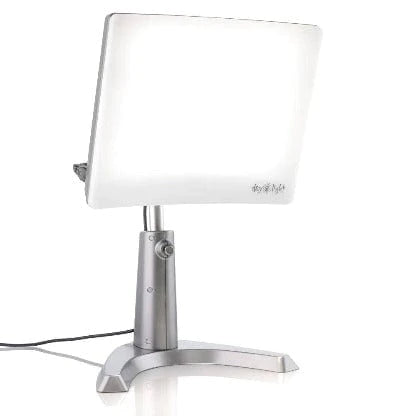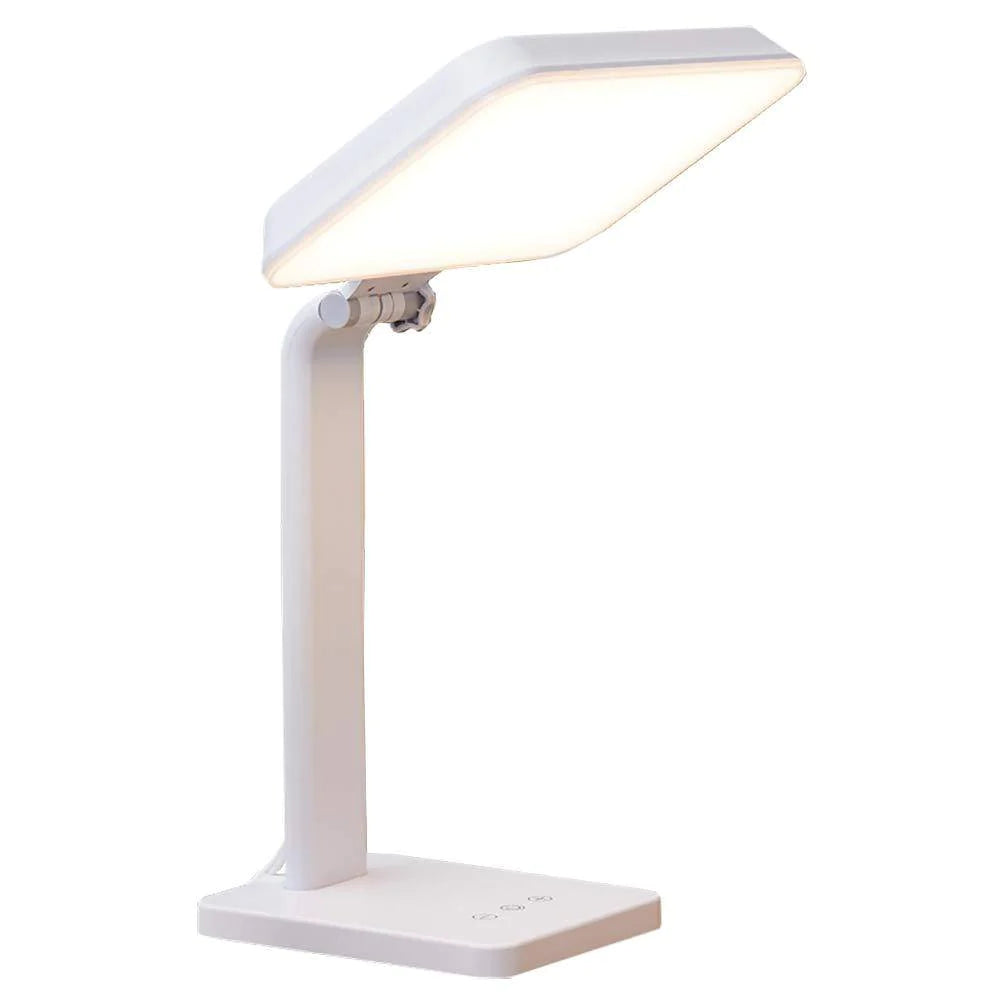
Understanding Melatonin Deficiency
Melatonin, also known as N-acetyl-5-methoxytryptamine, is produced by many different species, including plants, animals, bacteria, and fungi. In humans, it is the pineal gland that is responsible for the production of this hormone.
We all know that the production of melatonin is crucial to getting adequate sleep. As nighttime approaches and we get ready for bed, our circadian rhythm signals to our brain that it's time to sleep. The brain then releases melatonin, which is the hormone responsible for regulating wakefulness and sleepiness. If you struggle with insomnia, perhaps it's due to melatonin syndrome.
In addition to regulating sleep, melatonin has other responsibilities within our body as well. When we have a melatonin deficiency, these activities cannot be adequately maintained.
In this article, we’ll explore the signs and symptoms of melatonin deficiency and how you can get more melatonin.
What Does Melatonin Do in the Human Body?
One of the common questions that people ask is: Where does melatonin come from? As mentioned, the pineal gland is responsible for producing and releasing melatonin during certain times of the day. Production of this hormone is inhibited by light and triggered by darkness- which means levels of this hormone are highest during nighttime hours. This affects our circadian rhythm.
For infants, melatonin production is highest between 12 AM and 8 AM. However, as an individual progresses through adolescence, the release of melatonin becomes delayed, which results in later sleep and wake times.
Of course, several things can affect melatonin production, such as jet lag, working overnight, dietary deficiencies, and excessive light exposure.
Melatonin Syndrome Symptoms
There are several signs and symptoms of melatonin syndrome- or melatonin deficiency- related to circadian rhythm. The primary complaint is sleep issues. Low levels of melatonin in the body can result in difficulty falling or staying asleep.
The signs and symptoms of melatonin syndrome are as follows:
- Insomnia- difficulty falling and staying asleep
- Waking easily
- Restless sleep
- Not feeling refreshed upon waking in the morning
- Waking early and unable to fall back asleep
- Not dreaming
- Irregularities with the menstrual cycle in women
- Fatigue
- Confusion/forgetfulness
- Depression
- High blood pressure
- PMS
- Sensitivity to stress
- Blood clots
- Increased chance of arrhythmias/heart attack
Unfortunately, the effects of melatonin deficiency in infants and children are much more challenging to detect. Signs/symptoms of low melatonin in infants include irritability and difficulty sleeping, compared to other children the same age.

Light Therapy for Melatonin Deficiency
⭐⭐⭐⭐⭐
"Within 2-3 days of using the lamp for 30 minutes in the morning I could already feel a massive increase in my mood and energy levels. Whereas before I was having difficulty staying awake and maintaining focus in my medical school lectures - I now felt incredibly happy, alert, and focused in lecture. In addition, I was able to re-regulate my sleep schedule within 3 days (I used the lamp for another 30 minutes in the afternoon when I felt like I needed a nap)! The effects of the lamp carried over into my social life as well - I could already tell the increase in my mood had me more readily engaging in social activities with my colleagues. Plus, my increase in productivity during the day with my schoolwork helped free time for me to do the things I enjoy doing outside of my educational responsibilities." - Amazon Review
SHOP NOWWhat Causes Melatonin Imbalance?
One of the most common causes of melatonin imbalance is aging because, as we grow older, our bodies don’t produce as much of this hormone. Therefore, older adults are at an increased risk of melatonin deficiency- and some produce no melatonin. Of course, this syndrome can be present regardless of age.
Some of the most common causes of low melatonin levels include:
- Chronic stress
- Low exposure to natural light during the day/high exposure to light at night
- Insomnia
- Jet lag
- Night shift work
- Deficiencies with certain nutrients
In infants and children, melatonin deficiency can result from disrupted sleep schedules, which means it's critical to make sure that your child has a regular sleep routine.
Treating Melatonin Deficiency
According to medical experts, the best way to treat melatonin deficiency is by using melatonin supplements. Melatonin supplements can be useful for a variety of things, including:
- Disturbances in natural sleep/wake cycles
- Difficulty falling asleep
- Insomnia caused by beta-blockers
- Circadian rhythm disorders
- High blood pressure
- Endometriosis
- Jet lag
- Thrombocytopenia
- Sedation before anethesia
- Insomnia
Women who wish to become pregnant need to be careful when taking melatonin because high dosages could inhibit ovulation. Pregnant women should consult with their doctors before taking melatonin supplements, as the long-term effects on a developing fetus have not yet been examined. Additionally, a pediatrician should be consulted before giving melatonin supplements to children.
Alternative Ways to Increase Melatonin Levels
Of course, while melatonin supplements are the best way to treat deficiencies in melatonin production, it’s not the only way. There are some other things you can do to encourage your body to increase production. These include:
- Maintaining regular bedtime
- Avoid drinking alcohol or caffeine before bed
- Avoid naps
- Exercise
- Increase exposure to natural light or a light therapy lamp
Some dietary factors affect the production and release of melatonin. For example, tryptophan converts into serotonin, which then leads to melatonin production. Foods containing tryptophan and resulting in serotonin and melatonin production include pumpkin seeds, milk, turkey, steak, and chicken.
Finally, you may be able to improve your sleep quality by using other herbal supplements, including kava, chamomile tea, or valerian root.
Effective Melatonin Dosage
While melatonin supplements are typically taken in pill form, they are also available in sublingual or intravenous forms- and come in both quick release and slow-release formulas.
The dosage you will need depends upon your medical conditions and overall health. The typical dosage ranges from 2 to 5 milligrams. However, in some cases, a higher dosage of 10 milligrams may be appropriate.
You will want to consult with a medical professional to determine the best dosage for you.
Melatonin Supplement Side Effects
Typically, melatonin is fairly well-tolerated. However, there are a few possible side effects, including the following:
- Dizziness
- Daytime sleepiness
- Nausea
- Headache
Since this supplement does cause drowsiness, you should avoid driving or operating heavy machinery for 5 hours after taking it. In rare cases, there may be more serious side effects, including:
- Anxiety and depression
- Low blood pressure
- Mild tremor
- Disorientation/confusion
- Irritability
- Abdominal cramping
- Decreased alertness
- Seizure
While these side effects are rare, you must monitor your response to melatonin supplements if these occur.
Additionally, consider that melatonin may interact with some medications, including medications for high blood pressure, anticoagulants, caffeine, benzodiazepines, medication for diabetes, anticonvulsants, warfarin, oral contraceptives, methamphetamine, and central nervous system depressants.
If your doctor determines that melatonin supplements are appropriate to treat your melatonin deficiency, be cautious when you get started. If you’re not sure of the effects of melatonin with other medications you are taking, talk with your doctor or pharmacist.

Light Therapy for a Boost of Melatonin
⭐⭐⭐⭐⭐
"Love this lamp! I have it on my desk at work and I don’t sit there much but when I do it really lights up the space. Maybe it’s placebo effect but I’m sleeping better. Love it. I also love the lamp controls-very sleek." -Amazon Review
SHOP NOWConclusion
Melatonin is responsible for regulating our sleep/wake cycles. However, in some cases, individuals struggle with a melatonin deficiency. This can result in insomnia, interrupted sleep cycles and could ultimately affect your overall health. If you are dealing with any of these issues, you could have melatonin deficiency. Speak with your medical professional to find out more about what you can do.
Additional Melatonin-Related REsources
About the Author

Brandon Landgraf is the Digital Marketing Manager for Carex Health Brands. He finds passion and fulfillment in creating content that enhances, improves, and enlivens others' quality of life. All of his written work is formulated to not only offer essential advice and tips but back it with proven studies and experts. His mission is to connect with readers and provide steps to make their lives better.
You can connect with him on LinkedIn here.
About Carex Health Brands
Carex is your one-stop shop for home medical equipment and for products that assist caregivers with providing the best possible support and care for their loved ones. Carex Health Brands has been the branded leader in in-home, self-care medical products for over 35 years. Our goal is to improve the lives of our customers by bring them quality products that bring dignity back to their lives. With our three nationally distributed brands, Carex Health Brands serves national, regional and independent food, drug and mass retailers along with wholesalers, distributors and medical dealers.






